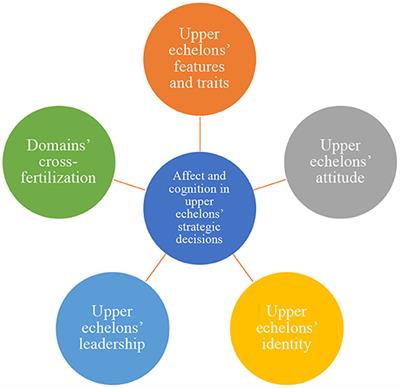EDITORIAL
Published on 13 Jan 2023
Editorial: Affect and cognition in upper echelons' strategic decision making: Empirical and theoretical studies for advancing corporate governance

doi 10.3389/fpsyg.2022.1081095
- 1,725 views
- 5 citations
14k
Total downloads
69k
Total views and downloads
Select the journal/section where you want your idea to be submitted:
EDITORIAL
Published on 13 Jan 2023

ORIGINAL RESEARCH
Published on 19 May 2022

SYSTEMATIC REVIEW
Published on 09 Mar 2022

ORIGINAL RESEARCH
Published on 24 Feb 2022

ORIGINAL RESEARCH
Published on 16 Feb 2022

ORIGINAL RESEARCH
Published on 14 Feb 2022

CONCEPTUAL ANALYSIS
Published on 03 Feb 2022

ORIGINAL RESEARCH
Published on 10 Nov 2021

HYPOTHESIS AND THEORY
Published on 26 Oct 2021

ORIGINAL RESEARCH
Published on 01 Oct 2021

ORIGINAL RESEARCH
Published on 24 Sep 2021

ORIGINAL RESEARCH
Published on 16 Aug 2021

